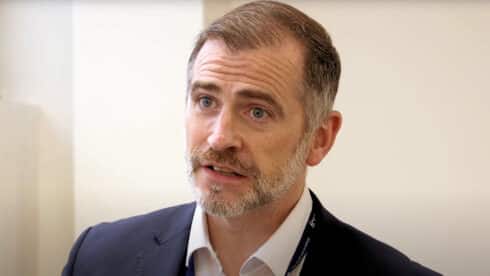Chartered coaching psychologist and founder of Malleable Mind, Aidan Kearney explores the intersection of personal fulfilment, purpose, and psychological wellbeing within the realm of our professional lives, offering invaluable insights into crafting a meaningful career path.
Let’s start with a question. How much time do we spend in work? It’s of course an individual and unique number that can be influenced by a whole host of circumstances, but a commonly stated number is in the region of 90,000 hours during our lifetime.
Just stop for a second and consider the magnitude of that number… 90,000. It’s pretty mind boggling isn’t it. So, here’s my next question. Given the magnitude of this number what might we want to consider about making this time as personally productive and effective as possible?
This is where I would invite you to consider who you are at work, what work and your role mean for how you see yourself and what function work and careers fill in that large portion of our existence. To be clear, we know that work and careers help us to fulfil certain needs, what Abraham Maslow identified as deficit needs, things like food, shelter, security. These are the aspects of our need that are central to our survival and basic levels of wellbeing. Their absence causes deficiencies for us and of course can contribute to levels of stress, anxiety, and a whole host of physical and psychological impacts.
But once we are able to satisfy those basic needs, what else comes into play. I might suggest that given the numbers we’re talking about in terms of the time commitment to work, that we would hope it fulfils other aspects of our needs than simply survival. With 90,000 hours’ worth of time, there is clearly an opportunity to consider what other role and function work could serve for us.
How could that commitment of time, support and grow a sense of thriving; of fulfilling core elements of who we are and who we want to be? Here I’m not speaking about a specific role, or title but something much deeper; harnessing and focusing levels of our psychological wellbeing that relate to how we feel balanced and satisfied, how we feel that we are thriving. And for that I’m talking about understanding our purpose; how our values link with this, and ultimately support a solid construct of identity.
When you hear the word purpose, you may gravitate to existential considerations and think that what I’m talking about is a deep philosophical contemplation. And while that is certainly one interpretation, I’m actually talking about something much more grounded, and every day.
In the psychological world, understanding our purpose helps us to anchor what we’re doing and why. Purpose helps to inform a direction of travel, our choices and how we act. Purpose links with our goals and motivations. Given that we spend that large amount of time (90,000 hours) in work, I might suggest that understanding and fulfilling purpose would be something that is definitely worth spending time understanding and bringing to life.
So, your next question may be, well what is purpose? How do I identify it? Let me answer that with a question of my own … who are you? And I don’t mean, what’s your name, or what you might tell me about situation at this moment in time (family, marital status, etc). No, I mean something much deeper from a psychological perspective. I mean who are you really? How would you define yourself? What is it that makes you, you?
This is a more challenging question than we might at first think, because it’s very easy to go through life looking out at the world without paying much attention to what’s going on internally. The idea of self-knowledge, insight and understanding what makes us tick, is something that I consistently come across as undiscovered country when I’m working with clients, both individually and at team and an organisational level. What I’m talking about here is how our personal values relate to our identity and creating the stability within our psychological world.
Let me explain, if we are being true to ourselves, we feel balanced and settled. If we act discordantly with how we want to see ourselves, it leaves us unsettled and can open the door to self-doubt and self-critical thought.
If we are being true to ourselves, we feel balanced and settled.
A classic example is wanting to be confident (after all who doesn’t want to feel confident) but avoiding public speaking due to the activation of powerful internal perceptions and thinking processes. The outworking can be that we feel relieved for avoiding something we perceive as potentially unpleasant, but we criticise ourselves for not feeling confident.
This is a very simple example of a much more complex issue and one that I help clients to explore in managed and evidence-based way.
Even when we understand our value set, the challenge doesn’t stop there, as bringing our values to life is not straightforward. An overplayed value, one that is held too tightly (as we talk about in Acceptance and Commitment Therapy) can actually become a barrier, can create problems rather than supporting vitality.
But bringing these considerations, how we fulfil important aspects of who we are, is I would suggest (and the research backs this up by the way) a vital consideration. Why? Well, the research tells us that meaningful work, promotes positive psychological outcomes, like positive affect (emotional impact), wellbeing and eudaemonic outcomes (life satisfaction). Now given that we’re going to spend 90,000 hours at work, who wouldn’t want to have their work provide those outputs?
And from an employer standpoint, I could actually draw you an equation and output from these factors in terms of how they impact profit and productivity.
So, the final question might be… but where do I start to understand my purpose, how do I identify those aspects of my identity that I can seek to fulfil with ‘meaningful’ work?
It’s pretty simple. Stop and reflect on your own behaviour. Identify the times you were content with how you acted. What does that tell you about what was important?
Conversely, identify the times where you were unhappy about how you acted. What does that tell you about what was important in that scenario? And if you’re looking for an outside perspective, try asking your friends, what makes us friends?
Inevitably they may say because we like each other, or you’re funny or something similar. But I invite you to dig a bit deeper. Really ask that question properly. What is it about me that makes us friends, what is it about me that makes you want to spend time with me?
These are more difficult questions than you might think, and ones that from a professional perspective I’ve spent time and energy learning to navigate and explore at deep levels, helping others to understand themselves, values, and purpose in a sustainable way. But for now, consider this.
Whatever you uncover, whatever insight you develop, how then could you bring all of this to life? And what would this mean for 90,000 hours of work that on average we’ll experience? How could building in that sense of purpose, fulfilling core aspects of who we are help those 90,000 hours become something which supports us thriving, growing, and sustaining our wellbeing? And if need be, access support to understand this, trust me you’ll thank yourself for it.


